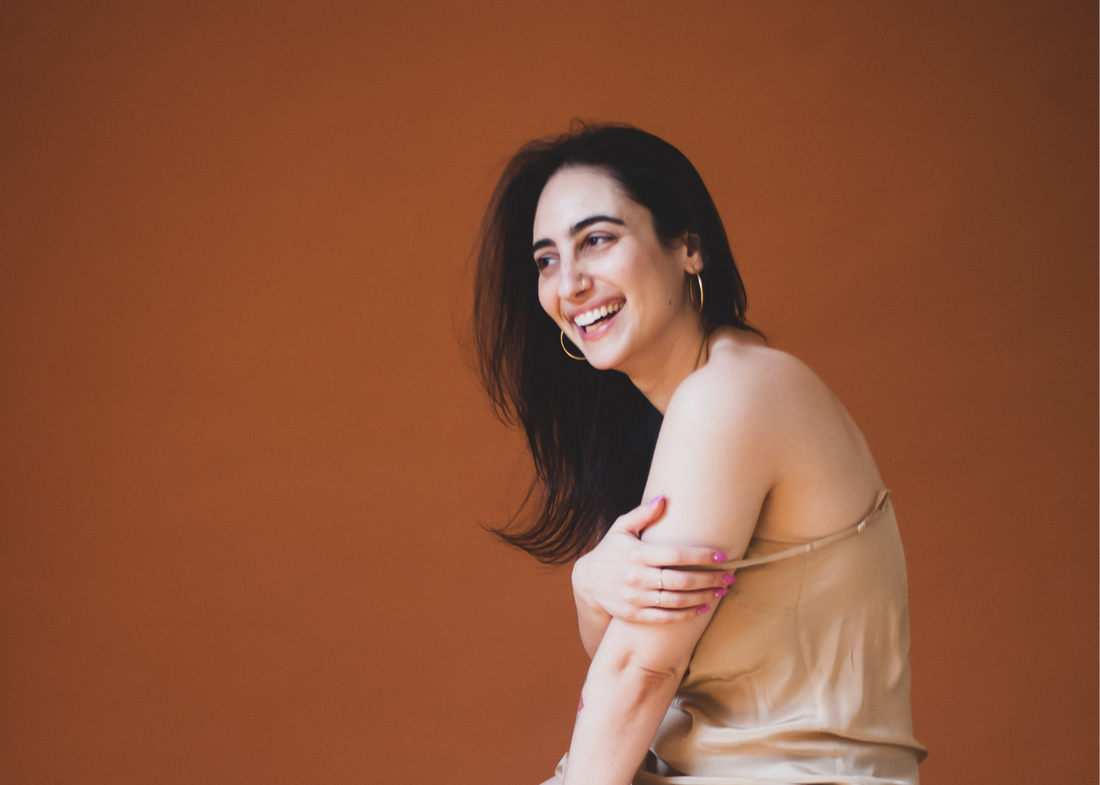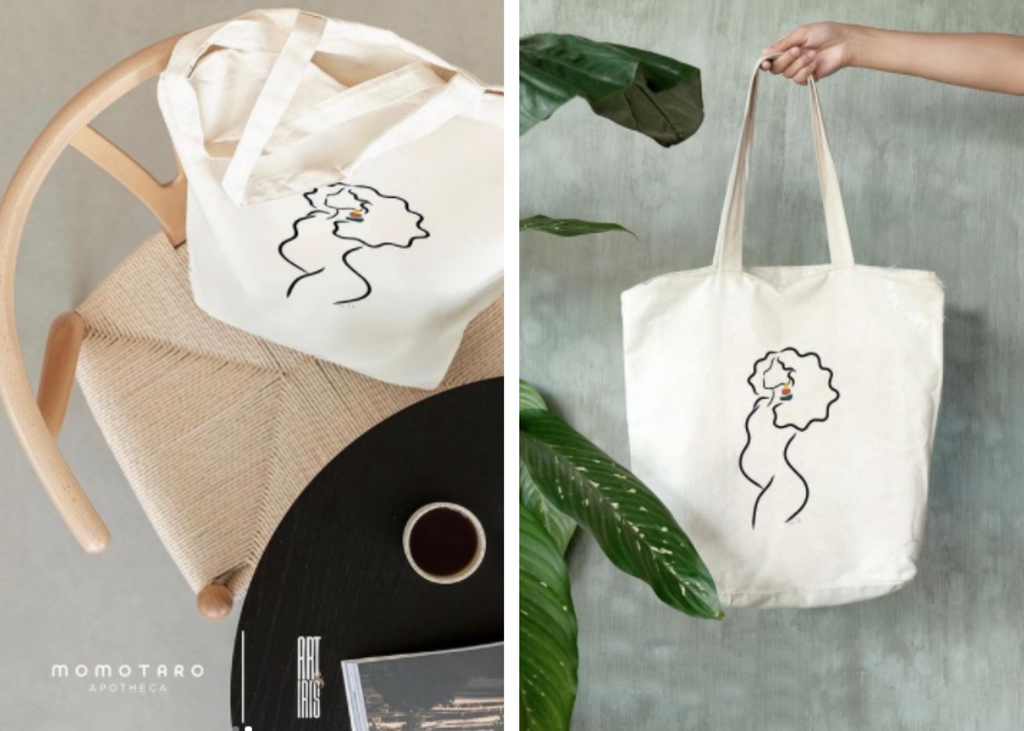
Meet Yael Borensztein: Doula & Lactation Specialist
Share
Check out our live with Yael where we shook up traditional narratives surrounding motherhood and started questioning the ingrained gender roles of parenting. See you there.
Giving birth and raising a child is kind of a life-changing experience (duh) so we spoke with our friend and certified doula, Yael Borensztein of Root and Spark—a team of two doulas dedicated to providing intuitive pregnancy, birth, lactation, and parenting support to expecting families and communities in New York City.
So what do doulas actually do? Basically they help you/or your partner transition into parenthood as smoothly as possible. Yael gives us a better idea of the value of doulas (they're not just for "crunchy" lifestyles we swear!), community, and support systems in all stages of birth (and life). Pregnancy is life-changing, and no one is ever completely prepared. We're just here to help you along the way.
Tell us about being a doula. Why is it amazing and why should people use Doulas?
People deserve support. That’s the most basic answer to why people should work with a doula or birth partner. Doula work has been around for as long as there have been people and, at its core, it’s just people caring for and loving their community.
In 2020, we just don’t have that kind of community structure anymore, so doulas have stepped up to fill that gap in how we love each other. A lack of community coupled with the fact that we don’t generally talk about conception, pregnancy, birth and early parenting in an honest, non-scary way, the experience of having chosen to be pregnant and become a family can feel deeply isolating, overwhelming and super fear-based.
90% of pregnant people see OB/GYNs for their pregnancy and birth care, but even the most loving and well-intentioned OB/GYNs have super high patient loads, little time for actual connection with their patients, and are bound by policies and protocols designed to protect them from malpractice. It’s easy to feel like you have no power or autonomy during a vulnerable time.
"A good, loving doula has no agenda beyond making sure that their client has access to all of the information & support they deserve."
Doulas make time to listen to their clients, to connect them to resources, to walk them through worries or amplify their feelings of power. We prioritize evidence based care and the fact that our client is a whole individual with a life outside of our time with them, and it’s been proven that using a doula during pregnancy and birth can dramatically reduce rates of medical intervention and increase a person’s overall satisfaction with their birth experience. We’re also just a safe and reassuring sounding board for our clients—I’m literally texting with a client/friend about the way her vulva looks post-birth as I’m answering these questions. How great is that for her?!

What are a few misconceptions about being a doula and the field in general?
The biggest and most basic misconception I get about being a doula is that we are the same as a midwife or that we actually do the “catching” of the babies. Doulas are non-medical professionals. There are tons of trainings available to us, but none of them provide us with a license to practice any kind of medical patient care. Only midwives and doctors are legally trained to catch babies, so doulas work in tandem with them to care for our clients.
The other big one I hear over and over again is that we are all earthy, crunchy, witchy hippies that only want people to have epidural-free vaginal births and breastfeed until their kids are in kindergarten. A good, loving doula has no agenda beyond making sure that their client has access to all of the information and support they deserve to have a birth that is respectful and in alignment with the pregnant person’s values.
We will be honest when we know you can be treated better or when a health care provider is giving recommendations that go against the most current evidence, but the decisions will always be made by the birthing person and their family. I may still carry crystals in my birth bag, but whether the client wants to use them is entirely their choice.

If someone can’t afford a doula what are a few things that they can do for themselves or what kind of help should they reach out to friends and family for?
Truthfully, my dream is to empower and equip our communities with the knowledge and confidence to support each other during these major life transitions. Some of the most special weeks of my life have been spent caring for my close friends and family as they give birth and learn to parent. It is such a gift, and it used to just be the way.
That said, we’re not all as lucky as my circle of friends and hiring a doula can sometimes be a prohibitive cost. This disproportionately affects marginalized communities, especially black families who already come into pregnancy with an unacceptable 4x higher rate of maternal mortality in the US.
Firstly, know that there are some incredible programs to provide free or low cost doula services to those who need and deserve it. Here in NYC, we have @ancientsong doing incredibly important work around supporting black families and birthing people. Beyond that, most new doulas work for free or low cost as they gain experience. While I don’t love anyone (especially womxn) being expected to work for free, there are people who are happy to donate their time in this way as they learn.
Regardless of doula support, we can and should absolutely be asking our friends and family to step up in specific ways. Have them read childbirth and parenting books with you so that you learn together, ask them to set up a meal train for the first month post birth, make a schedule of loved ones who can come by and do your laundry and clean your kitchen for you. Most of the time people want to show you their love during such a special time but just don’t know how, so by giving them clear guidelines or tasks ahead of time you can set everyone up to feel useful.
Any final thoughts? Or a closing personal statement?
I am just full of wishes for a better standard of how we care for pregnant people and families. When you spend your time watching people create and welcome new life and you bear witness to how people are treated during this time, it becomes so obvious that the way we treat birthing people is a direct reflection of how loving and successful a community is and will be. Continue this logic and you can explain war and poverty and racism and anything else that hurts.
My aim will always be to show kindness, remove judgment and love my clients in the way we all deserve, and the best part about that is that no one needs a doula training or any of the other letters behind my name to provide that to their communities.
Support birth equity. Shop the artist series. 100% of proceeds will be donated to the National Birth Equity Collaborative (NBEC).
Our products are a great starting place for those who want to promote healthy healing after pregnancy. They're gentle enough for tender skin and effective for symptoms that may stem from issues surrounding pregnancy.
Further Reading
Pregnancy & Postpartum with Your Partner
Cycles of Change: From Puberty to Menopause & Beyond
Protect Your Birth: A Guide For Black Birthers Navigating the Whitewashed Healthcare System by Dr Mare (she/her), OBGYN
Strategies to Cope With Past Trauma and Reclaim Your Body During Pregnancy, Birth, and Postpartum by Sevonna Brown (she/her) @sevonna
Meet Yael Borensztein
Yael Borensztein is a Certified Advanced Holistic Doula, lactation consultant and registered nurse living and working in NYC. She’s been taking care of birthing people and new families for 10+ years and you can find her at @yael.borensztein, @rootandspark and www.rootandspark.com.
We're always here to help, so please don't hesitate to ask us anything—we'll have an answer, or point you in the right direction.
Momotaro Apotheca and its materials are not intended to treat, diagnose, cure or prevent any disease. All material on Momotaro Apotheca is provided for educational purposes only. Always seek the advice of your physician or other qualified healthcare provider for any questions you have regarding a medical condition.


